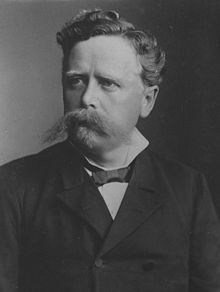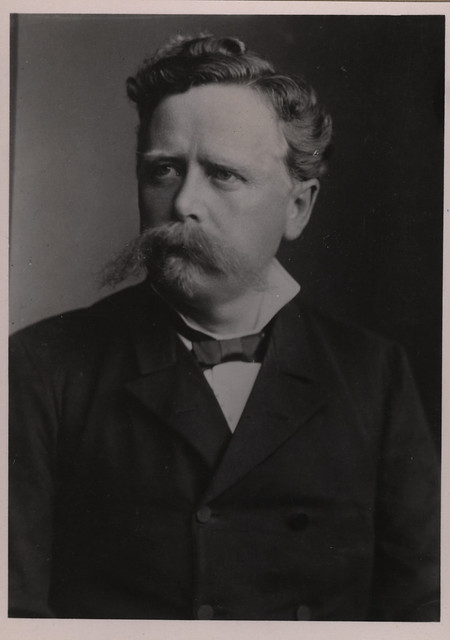Karl Engler
Carl Oswald Viktor Engler ( born January 5, 1842 in Weis Weil; † February 7, 1925 in Karlsruhe ) was a German chemist, university professor, and politician.
Life and work
The son of a minister from 1859 studied chemistry at the Polytechnic School in Karlsruhe, where he in 1863 got a job as a research assistant. 1864 Engler received his doctorate at the University of Freiburg Dr. phil and taught there after his habilitation from 1867 to 1872 as a lecturer. 1872 Engler associate professor of chemistry at the University of Halle (Saale ), where he in 1872 and 1874 his two-volume "Handbook of Industrial Chemistry " published.
In 1876 he became a full professor of chemical engineering and director of the chemical engineering laboratory of the Polytechnic School of Karlsruhe, 1885 Technical University of Karlsruhe. In 1887 he became a professor of chemistry and director of the University of Karlsruhe.
In 1870 he published together with Adolph Emmerling, a student of Adolf von Baeyer, a work in which the two first reported the formation of traces of indigo from a material that is not derived from indigo. The synthesis of indigo now they have not found, as often reported. This succeeded Adolf von Baeyer in 1878, in 1883 also the correct structural formula described.
From 1884 he turned to the Erdölchemie. He undertook in 1885 a study trip to the oil production area in the Caucasus, and later in the Middle East (Egypt ) as well as to North America. Engler argued that oil is ultimately originated in ancient times from animal fat.
His later research focused on the oil. To determine its viscosity, he developed the Engler viscometer. Numerous tours have taken him in oil production areas in many parts of the world. Together with Hans Höfer he gave in 1919 the six -volume work "Oil - Its Physics, Chemistry, Geology, Technology and its economic operation" out in 2nd edition from 1927.
He also explored, among other things, the characteristics of the ozone.
Politically active Engler at the National Liberal Party and sat as a representative from 1887 to 1890 in the Reichstag from 1890 to 1904 in the First Chamber of the Baden Estates.
From 1903, Engler was a member of the Supervisory Board of BASF, where he took on the development of ammonia synthesis by Haber- Bosch affect the others.
Honors
- Honorary doctorate from the Humboldt -Universität zu Berlin and Technische Hochschule Darmstadt (1911 )
- Honorary Doctor of the University of Munich (1918 )
- Academy member in Berlin, Bucharest, Petersburg, Turin and elsewhere.
- Since 1879 member of the Leopoldina
Named after Engler is the Carl Engler Medal, which gives the German Society for Petroleum, natural gas and coal ( DGMK ). Vocational School for Chemistry professionals in Karlsruhe also bears his name. After Engler Bunte and Hans is also the still existing " Engler -Bunte- Institute " named at the Karlsruhe Institute of Technology.










